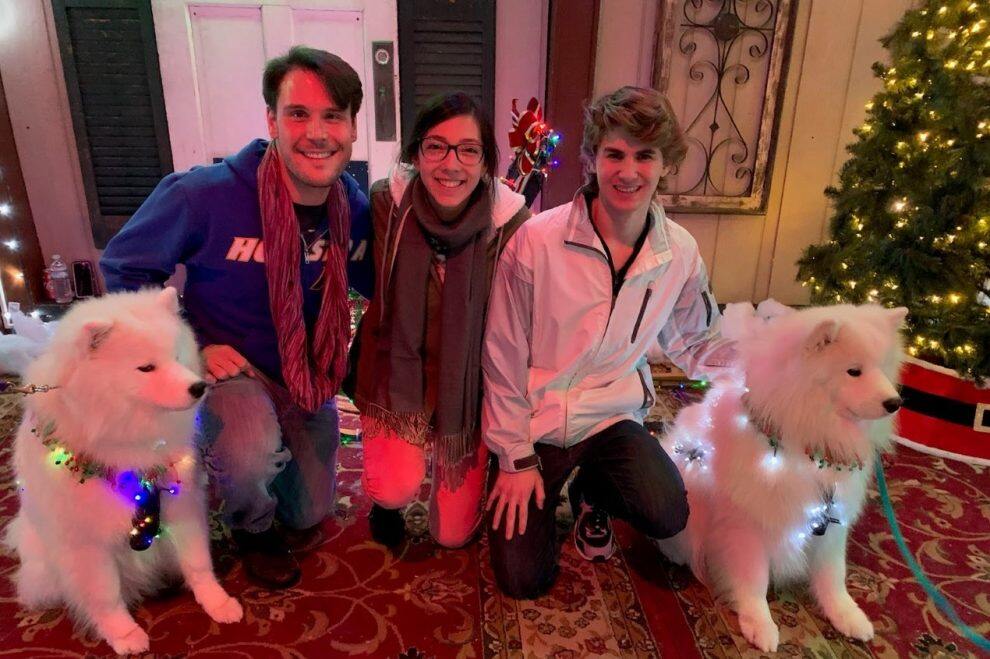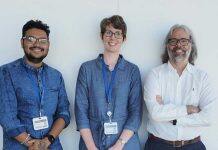

Students Rocco Distefano and Simon Ignat have been awarded Hofstra’s Firestone Fellowship, an award that has allowed them to continue research projects this summer. Distefano, a dual major in history and philosophy, is focusing his research on systematic racism and its impact on immigrant populations on Long Island from the 1920s to 1990s. Philosophy and political science major Simon Ignat is diving into the works of Nietzsche.
The students – friends outside the classroom – teamed up on the application process. Ignat says, “I have always appreciated Rocco’s compassion and intellect. I informed him of the fellowship, and he had a huge influence on me as I was writing my proposal. I had a feeling we’d both be recognized if we worked hard.”
Distefano ’21, who is working under the supervision of Education and History Professor Alan Singer, says the COVID-19 pandemic and Black Lives Matter movement are bringing much needed attention to racial inequities that exist in the justice system, healthcare, the workforce, and other sectors of society. Distefano worries that the division, fear and anger in this country may pave the way for white supremacist groups, like the Ku Klux Klan, to re-emerge locally.


This topic hits close to home for Distefano, a first-generation Italian-American. His father, Mauro, immigrated to America from Matera, Italy, in the early 1970s with an 8th grade education and no English language skills. As a result of the language and cultural barriers, Distefano says his father had difficulty settling into his new home and at times “was made to feel deeply ashamed of his heritage.”
Distefano fell in love with the study of American history while tutoring his father for the US citizenship exam. “This is gold,” the elder Distefano would say of the reference materials they were reviewing for the test.
When Distefano talks to friends and family about his Hofstra research topic, he finds that many are surprised by the history of racism on Long Island. “For example, they have no idea that the Ku Klux Klan, which is extremely anti-immigrant, was very active in the area. My friends are astonished when I tell them that more than 50,000 people attended Klan sponsored, family friendly day carnivals throughout the 1920s, only miles from what would eventually be the Hofstra campus.”
Distefano believes knowing and sharing the impact of racism in Long Island is key to stopping white supremacist groups from gaining a foothold of power in the present. “It is imperative that we look to the past for clues that will help us to prevent a fourth era of racist, terror activity.” Distefano’s research was recently published in The New York Historical Almanack, and he plans to present his work publicly at Hofstra, Nassau Community College, and the Holocaust Memorial & Tolerance Center in Glen Cove, NY.
Classmate Simon Ignat came to Hofstra from Tooele, UT. “I looked into Hofstra and found that it has a very well thought out 3+3 BA/JD [LEAP] Program. Since I am determined to study the law, that is why I decided to attend.”


Ignat had several reasons for selecting philosophy as one of his majors. “Many successful people I admire have studied philosophy, including [Paypal co-founder] Peter Thiel, several Supreme Court Justices, and even Lana Del Ray,” he says. “Philosophy is one of the most powerful tools for sharpening the mind and influencing cultural institutions.”
Ignat is working with Philosophy Professor Terry Godlove on research into the writings of Nietzsche. “My project is concerned with putting the western concept of truth on trial. Nietzsche accuses Socratism, Kantianism, and Christianity – all considered the pillars of western civilization – of creating philosophical and conceptual dogmas that enforce false narratives.” Ignat is specifically particular looking at Nietzsche’s argument that “Nothing is true,” which reasons that the universe is non-moral, and people must serve as their own moral agents and take responsibility and live with the consequences of their actions.
While Ignat’s plans after Hofstra are still somewhat uncertain, he says his areas of study have left him with many options. “The study of philosophy is vastly underappreciated for its flexibility. One thing that I do know is that I want to be involved with the U.S. justice system, which I see as one of the most influential ethical and valuation systems on earth. But I am also considering a career in academia. The [Firestone] fellowship is an exercise to see if I can make waves in either direction.”
The Firestone Fellowship, named in honor of Hofstra Professor of Political Science Bernard J. Firestone, the former dean of the Hofstra College of Liberal Arts and Sciences, supports experiential learning opportunities and is open to sophomores and juniors in the social sciences and humanities. Applications are typically due at the end of February.








































